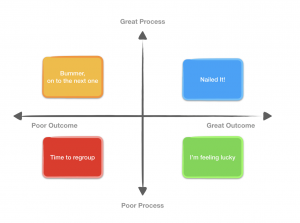At this time of year many of have much to be thankful for, family, friends, our health, our homes. It’s a shame that high on that list for many is not our life’s work. I remember sitting around a Thanksgiving table years ago with our extended family on both sides going around the table talking about what we were thankful for and when it was my turn, one of the things I mentioned was my work. This was met with disdain by one of the people around the table. How ridiculous that I would name my job as one of the things that I was grateful for in my life.
How sad for that person that their job, their life’s work, their chosen profession was not one of the things that they could take pride in and be grateful for. There are many benefits of work:
Fosters Creativity and Learning
Creativity thrives when people have an opportunity to work together. Brainstorming ideas prevents stale viewpoints that often come out too little interaction.
What you have learned from your individual experiences is entirely different from your coworkers. Thus, work maximizes shared knowledge and you learn new skills you can use for the rest of your life/career.
Builds Trust
Relying on other people builds trust and working establishes strong relationships. Despite occasional disagreements, an effective workforce enjoys working together and shares a strong bond. When you put your trust, you are establishing the foundation of a relationship that can endure minor conflicts.
Trusting your teammates also provides a feeling of safety that allows ideas to emerge. It helps employees open up and encourage each other.
Teaches Conflict Resolution Skills
Workplace rewards encourage employees to feel proud of their contributions. Tackling obstacles and creating notable work makes team members feel fulfilled. Working toward achieving company goals allows employees to feel connected to the company. This builds loyalty, leading to a higher level of job satisfaction among employees.
Encourages Healthy Risk Taking
Working with co-workers allows team members to take more risks, as they have the support of the entire group to fall back on in case of failure. Conversely, sharing success as a team is a bonding experience. Once a team succeeds together, their brainstorming sessions will produce revolutionary ideas without hesitation. In many cases, the riskiest idea turns out to be the best idea. Teamwork allows employees the freedom to think outside the box.
The benefits of work are many that have nothing to do with the economic benefits. The benefits of work are a matter of what one does while working, the social relations one enjoys, and the of learning one avails themselves.

